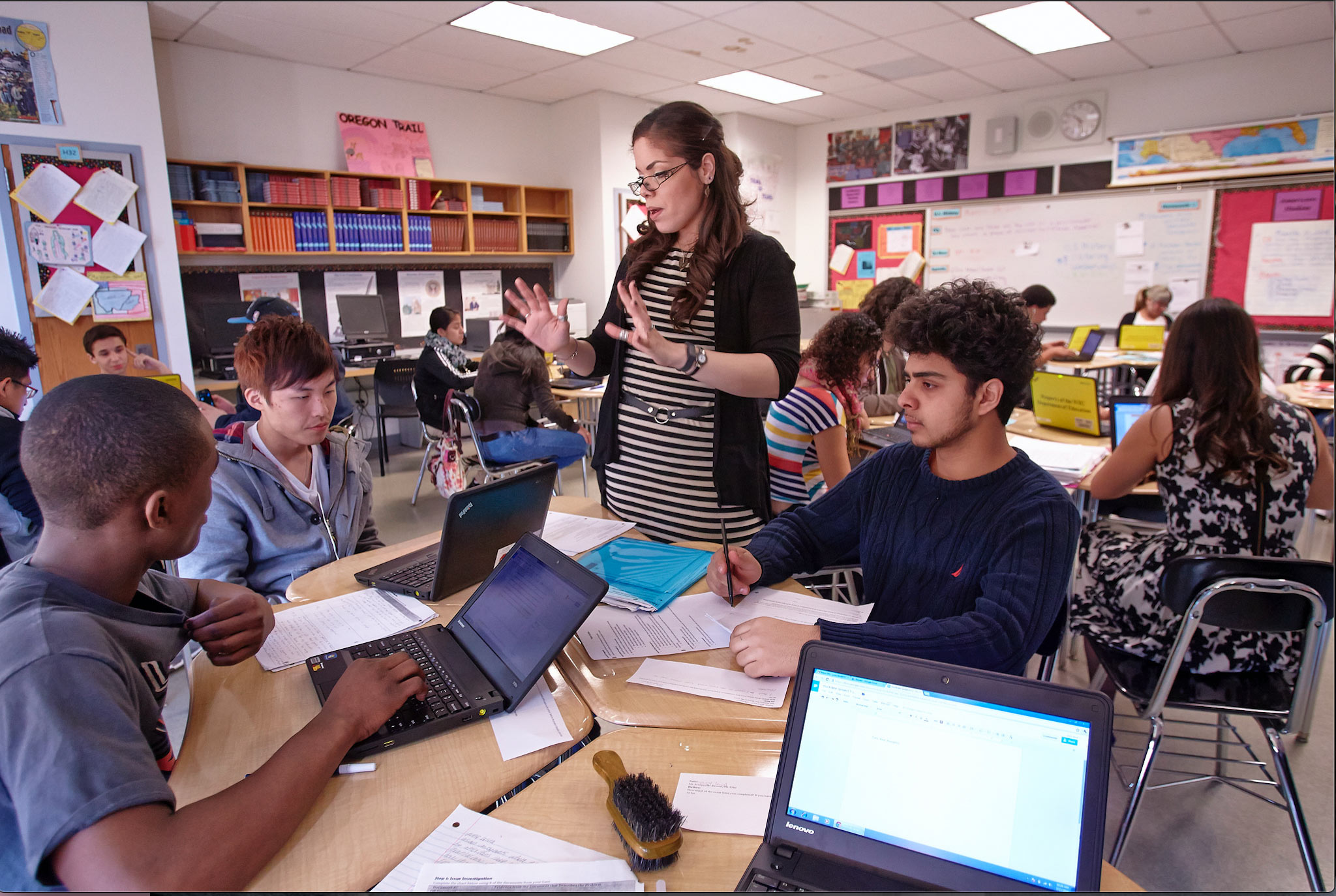No course of study could possibly prepare new teachers for what they encounter during the initial months or years in the classroom. It’s sink or swim.
This has long been the narrative in teacher preparation and it’s a faulty one.
On the contrary, with meaningful and purposeful practice, observation, and feedback, aspiring teachers do not have to face this false choice to “sink or swim.” When given the time to move through teaching scenarios and then reflect and understand what makes for effective teaching, novice teachers build their confidence and skills to navigate the classroom.
“There’s no need to teach from the gut,” remarked Frank Pignatosi, visiting assistant professor of Master of Arts in Teaching at NYU Steinhardt and a residency director in the NYU Steinhardt Teacher Residency. “With a steady progression of preparation designed to build and scaffold skills, ‘sink or swim’ is completely off the table.”
The teaching profession is unique in that a teacher with one or two years of experience is often given the same responsibilities as a teacher with 25 years of experience: sole accountability for an entire classroom of students. That’s why it’s essential to have preparation programs that build capacity in a gradual manner and provide the tools to continually reflect on one’s own practice.
These ideas are the foundation of the educational framework “gradual release of responsibility.”
What is “gradual release of responsibility”?
Gradual release of responsibility is a common instructional strategy in education. It purposefully shifts the cognitive load from teacher-as-model to joint responsibility of teacher and learner, and then to independent practice and application by the learner (Pearson & Gallagher, 1983). It has gained attention in teacher preparation residency models because the same idea can be applied between teacher mentor and teacher resident.
In this framework, residents gradually increase their responsibilities in a controlled manner – one that is observed by teacher mentors in the classroom and other faculty and leadership who are part of the residency program.
During the NYU Steinhardt Teacher Residency, residents experience one module at a time in their course work while learning side by side with a teacher mentor. “We’ve constructed a curriculum that builds upon the previous module and at the same time looks ahead to create a need for future modules,” noted Professor Pignatosi.
NYU Steinhardt faculty work with teacher mentors to understand and accept that residents will make mistakes. “We work with mentors who can support residents in the learning process. It’s like a controlled fall,” explained Professor Pignatosi.
What difference does gradually increasing responsibility make to new teachers?
In addition to the benefits of scaffolding skills to lay the groundwork for more long-lasting capacity, this concept helps create reflective teachers.
The Teacher Residency uses video to enhance learning, which is particularly supportive during rehearsals. In these mock teaching exercises, residents must provide evidence that they know how to connect elements in their course work to their teaching. They explain and document their chosen instructional strategies and classroom management techniques.
Reflection is a critical skill for residents to develop because it aids them in future years. “Learning means reflecting,” adds Professor Pignatosi. “Once a young teacher learns to reflect and understand strategies that fell short or lessons that failed, they can dissect what happened and improve for next time.”
If there’s no feedback, discussion, or reflection on where a new teacher went wrong, the only thing they learn is what not to do. There’s no opportunity to change what didn’t go as well.
The first few years in teaching do not have to be sink or swim. In fact, these formative years can be quite the opposite when new teachers have the preparation that supplies them with the confidence and reflective practice of what makes good teaching.
Interested in learning more? Explore in detail the curriculum modules for the year-long NYU Steinhardt Teacher Residency.
